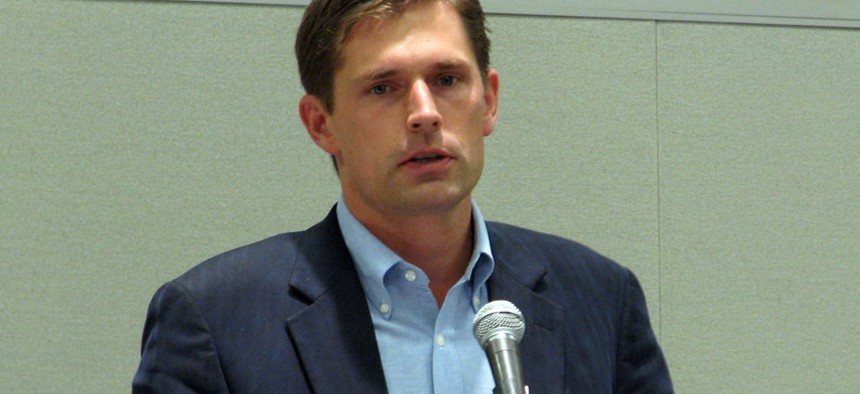Senator Wants MIT to Study Pentagon-Opposed Power Line at White Sands

Sen. Martin Heinrich, D-N.M., asked Frank Kendall, undersecretary of Defense for acquisition, technology and logistics, to tap the expertise at the MIT Lincoln Laboratory, a federally funded research lab Flickr user nmfbihop
Heinrich asks if military could adapt missile range tests.
Sen. Martin Heinrich, D-N.M., has asked the Defense Department to commission a scientific study to examine its concerns about the impact of a planned $1.5 billion high voltage transmission line that would run across the northern extension of the White Sands Missile Range.
The Bureau of Land Management on June 14 selected a route across the northern extension of the missile range as its “preferred alternative.” On Aug. 7 the Pentagon told BLM that the proposed route would interfere with weapons tests on the range, which in turn would threaten national security.
The proposed SunZia line, touted as a way to export “green” wind energy from New Mexico to Arizona, includes two single-circuit, bi-directional 500 kV transmission lines strung from 135-foot towers spaced 1,400 feet apart. In order to reduce conflicts with tests, Defense suggested SunZia spend $350 million to bury the line across the northern extension of the missile range.
In a Sept. 19 letter, Heinrich asked Frank Kendall, undersecretary of Defense for acquisition, technology and logistics, to tap the expertise at the MIT Lincoln Laboratory, a federally funded research lab, “to look at the concerns raised by White Sands Missile Range (WSMR) and examine potential changes to test protocols that would allow DoD to adapt to the presence of a new transmission line.” Heinrich backs the SunZia project, which he says will promote job growth.
Lincoln Lab, Heinrich told Kendall, “has a long history of creating innovative solutions to complex problems involving our nation’s radar systems and missile defense technology . . . [and] is well suited to examine the complex testing profiles for missions at WSMR and propose mitigation measures to allow missions to continue an allow for construction of the line.”
In an Aug. 19 letter to Interior Department Secretary Sally Jewell, Heinrich blasted the Pentagon for its continued delay of the project by first agreeing to and then backing off proposed routes for the line across the missile range. He told Jewell the SunZia project is essential to the state's economy.
The state’s other U.S. senator, Tom Udall, also a Democrat, has urged presidential intervention to resolve differences between the Defense Department, which opposes the plan, and the Bureau of Land Management, which selected the route.
BLM was supposed to make a decision on SunZia this month, but that has been pushed back until October or November, the Albuquerque Journal reported on Saturday.
--
Explore the future of technology in government at Nextgov Prime Oct. 15-16 in Washington. Registration for federal employees is free.
(Image via Flickr user nmfbihop)






